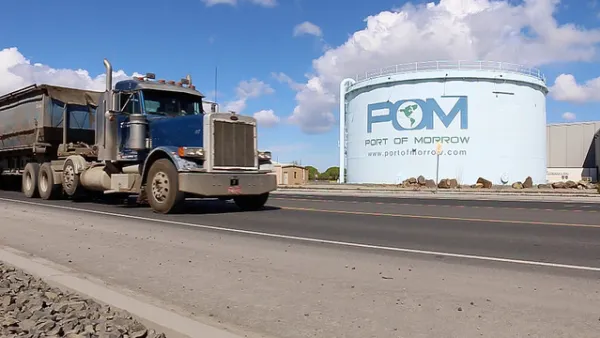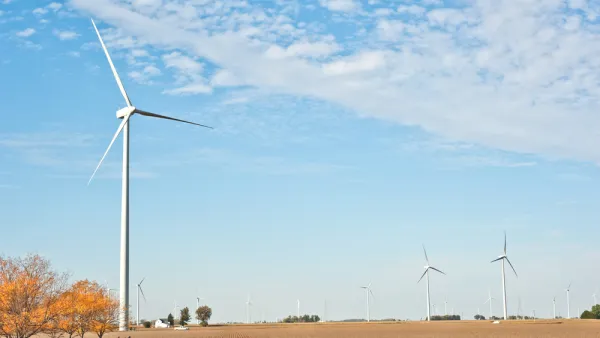Decisions, Decisions. What's the best way to add transportation fuels to California's cap-and-trade program? Charge a carbon tax at the pump, as Senate leader Steinberg proposes, or charge refineries in the same manner as applied to other industries?
"California’s cap-and-trade system currently affects only industrial plants – but next year, it’s set to expand to vehicle fuels too. Now, Senate Leader Darrell Steinberg (D-Sacramento) says he wants to exempt those fuels from cap-and-trade – and implement a carbon tax instead," writes Ben Adler. [Also on audio].
In essence, the decision is whether to charge consumers at the pump or have refineries participate in a carbon auction, and pass on the added costs to consumers. "Steinberg hopes that a straightforward carbon tax would be better received by consumers than the complicated cap-and-trade pricing mechanism," writes Marc Lifsher in the Los Angeles Times.
The proposal doesn't seem to be going over well - with some fellow Democrats and environmentalists.
- "Cap and trade is the preferred approach," said Derek Walker of the Environmental Defense Fund in San Francisco, wrote Lifsher.
- Sen. Fran Pavley (D-Agoura Hills), who wrote California’s landmark greenhouse gas reduction law, says a carbon tax would conflict with AB 32’s overall goal of reducing climate change “… because it sends mixed signals to the major emitters – where some now are under a cap required to roll back, other people get a free pass, the motorists pay,” writes Adler.
Another way the carbon tax would deviate from cap-and-trade would be how it distributes the revenue. Rather than combining auction revenues from refineries with other Cap-and-Trade Auction Proceeds, it would "(r)eturn two-thirds of the Carbon Tax revenues to poor and middle-income Californians through a state Earned Income Tax Credit for families making less than $75,000 per year," wrote Steinberg in his press release.
Interestingly, the oil industry that has fought gasoline and oil royalty taxes in the past, is neutral, writes Adler, "but business groups don’t like the proposal. They argue companies and consumers would pay more at the pump."
In fact, Steinberg acknowledges gas prices will go up regardless – under cap-and-trade or a carbon tax. “And it may not be popular to say, but that’s necessary. Higher prices discourage demand.”
FULL STORY: Steinberg: Replace Cap-and-Trade With Carbon Tax for Vehicle Fuels

Analysis: Cybertruck Fatality Rate Far Exceeds That of Ford Pinto
The Tesla Cybertruck was recalled seven times last year.

National Parks Layoffs Will Cause Communities to Lose Billions
Thousands of essential park workers were laid off this week, just before the busy spring break season.

Retro-silient?: America’s First “Eco-burb,” The Woodlands Turns 50
A master-planned community north of Houston offers lessons on green infrastructure and resilient design, but falls short of its founder’s lofty affordability and walkability goals.

Test News Post 1
This is a summary

Analysis: Cybertruck Fatality Rate Far Exceeds That of Ford Pinto
The Tesla Cybertruck was recalled seven times last year.

Test News Headline 46
Test for the image on the front page.
Urban Design for Planners 1: Software Tools
This six-course series explores essential urban design concepts using open source software and equips planners with the tools they need to participate fully in the urban design process.
Planning for Universal Design
Learn the tools for implementing Universal Design in planning regulations.
EMC Planning Group, Inc.
Planetizen
Planetizen
Mpact (formerly Rail~Volution)
Great Falls Development Authority, Inc.
HUDs Office of Policy Development and Research
NYU Wagner Graduate School of Public Service



























